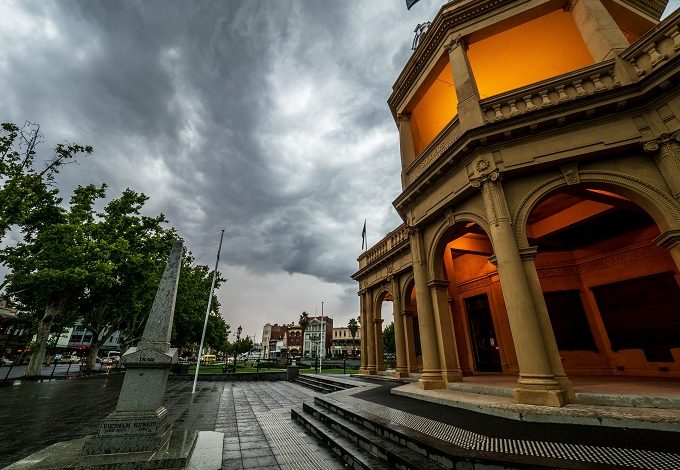
Regional recovery? One size doesn’t fit all
Bendigo bends under pressure due to lack of support...
Government support packages for the accommodation industry needed to be individually tailored because “one-size fits all” solutions are manifestly unfair.
That’s the opinion of Kristyn Slattery, President of the Bendigo Motel Association, whose family has been in the accommodation business for 27 years.
She said regional accommodation providers welcomed the Victorian Government’s $143m Circuit Breaker Support Package announced last month but said attempts at blanket coverage did not keep everyone from the cold hard reality of COVID’s damage.
The new package includes a $24.9 million boost to the Licensed Hospitality Venue Fund which will see previous recipients receive a one-off $3000 payment per premises.
The $16.2 million Victorian Accommodation Support Program allows providers with 10 and under cancellations to apply for $2250 per business, and those with more than 10 cancellations to apply for $4500 per business.
There will also be a $10 million injection to expand the Regional Travel Voucher Scheme to include a new Melbourne Travel Voucher with 40,000 vouchers for $200 for travel in greater Melbourne plus an additional 10,000 vouchers in regional Victoria.
“Any help for the industry is welcome,” Ms Slattery said, “but the measures are going to be a whole lot better for some than others. None of this has been a one size fits all solution.
If you had up to 10 room nights cancelled you get $2500 regardless of whether you got one cancellation or 10. If you lost 11 nights you get $4500, which is fantastic and more than covers the damage, but what if you had a lot more than 11?
“It’s better than nothing but it won’t go anywhere to covering what some people have lost through travel restrictions.
“The travel vouchers are a great idea but 10,000 doesn’t scratch the surface for what’s been lost throughout the last 12 months.”
Ms Slattery said both the federal and state governments had the data and the means to tailor recovery packages to individual properties.
“It’s the same with JobKeeper,” she said. “Some of our staff have been earning double what they were making because of JobKeeper, while others are still suffering. It’s unfair.”
Ms Slattery has run Bendigo’s four-star Julie-Anna Inn for five years. She said some of the 27 members of the Bendigo Motel Association were under more pressure than others with landlords who haven’t been supportive throughout the last 12 months.
“The financial and mental pressure has been very tough,” she said. “Bendigo has a large event calendar traditionally so that cherry on the top, that cream of the cake in our accommodation business, hasn’t been happening and a lot of people are struggling.”
At the Crossways Country Inn in Marysville, Pam Phillips agreed that funding should be tailored to fit circumstances.
“We had not a bad January for bookings but because they were all paid in December and on paper it looked as good as the December before, we were cut out of JobKeeper,” she said. “The guests came in January but we received no payments that month so ended up with nothing again.
We didn’t get any cancellations because we didn’t get the bookings. So sometimes the government is not always quite in touch.
“But anything is a help. We are in a fortunate position here that we don’t have much debt. If we were younger people, just starting out and had big mortgages we would be sunk by what’s happened to the industry during COVID.”
Dougal Hollis, general manager of Tourism Accommodation Australia (Vic), said the $143m support package was “an important and timely acknowledgment from government that the Victorian hotel industry continues to be one of the most adversely impacted sectors by the pandemic.”
“We certainly appreciate this announcement, but realise the industry remains ‘in a world of pain,’ and that further assistance is required,” Mr Hollis said.
“A recent member survey reflected that the dollar value of accommodation bookings lost, per hotel, during the snap lockdown ranged from $8,000 – $500,000, while between $1,400 – $200,000 in dining reservations per property were lost.”
Mr Hollis said occupancies across Melbourne hotels hovered around 39 percent in February (81 percent same time last year) with RevPAR also significantly down at $58.54 ($175.79 same time last year).
“It is vital for continued recovery that hoteliers are able to operate with as much flexibility as possible and with limited restrictions to trade. This includes being able to revert back to higher venue capacity limits, as outlined in their liquor license,” he said.
Mr Hollis said that given 86 percent of pre-COVID travel to Melbourne originated from interstate and overseas, a consistent approach to the re-opening of Australia’s state and international borders was critical.
Grantlee Kieza OAM has won three Queensland Media Awards, two Australian Sports Commission Awards and has been a finalist for the Walkley and News Awards and for the Harry Gordon Award for Australian sports journalist of the year. In 2019 he received the Medal of the Order of Australia for his writing. You can find more of his work in our AccomNews & Resort News print magazines.
He has written 22 acclaimed books, including bestsellers Hudson Fysh, The Kelly Hunters, Lawson, Banks, Macquarie, Banjo, Mrs Kelly, Monash, Sons of the Southern Cross and Bert Hinkler.







